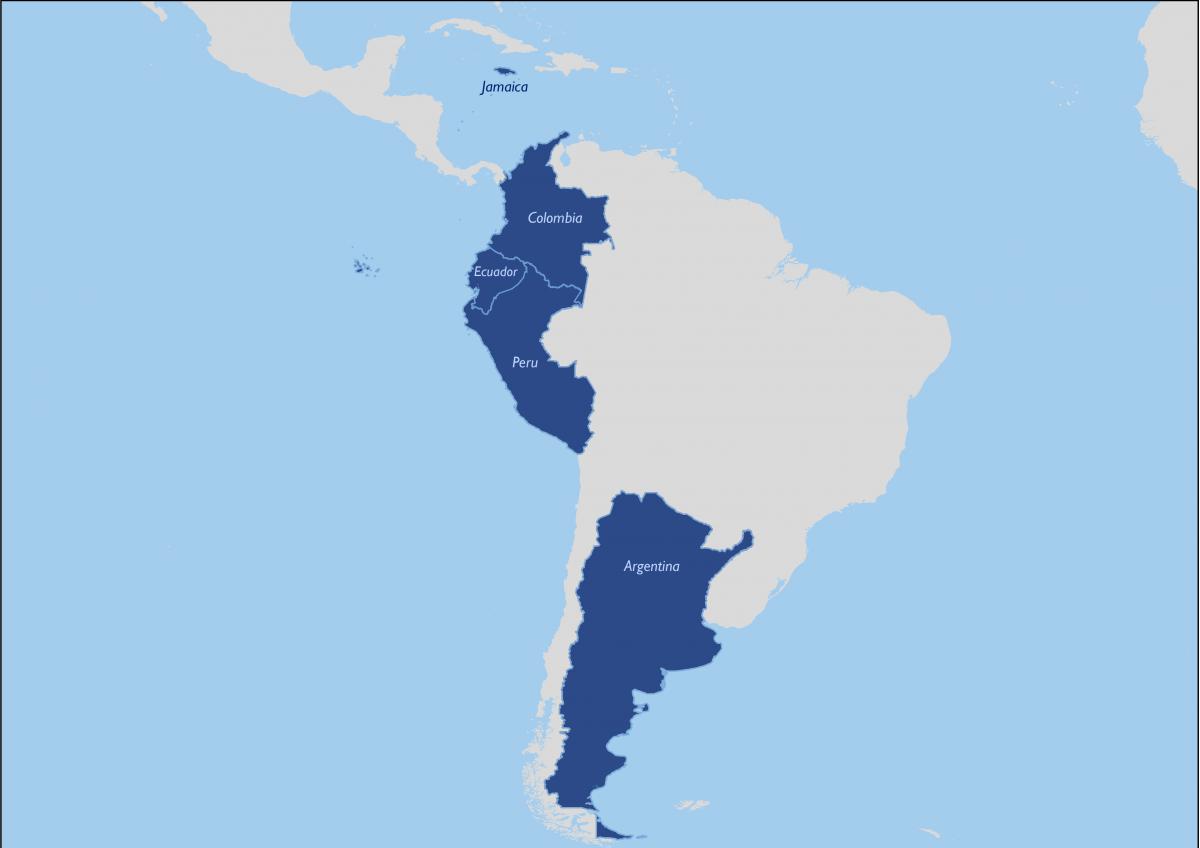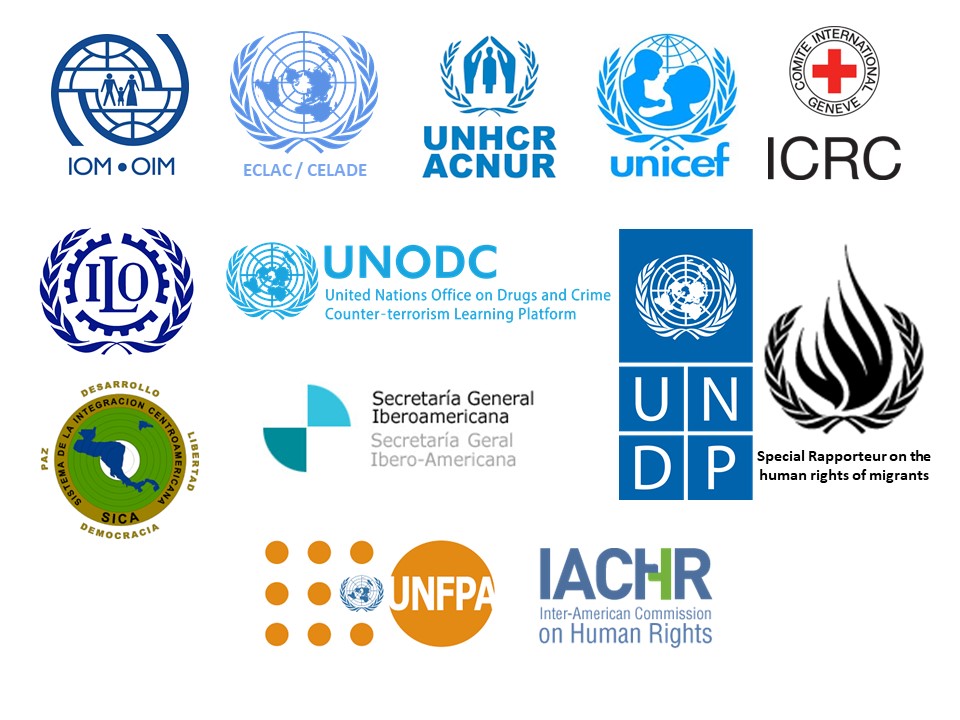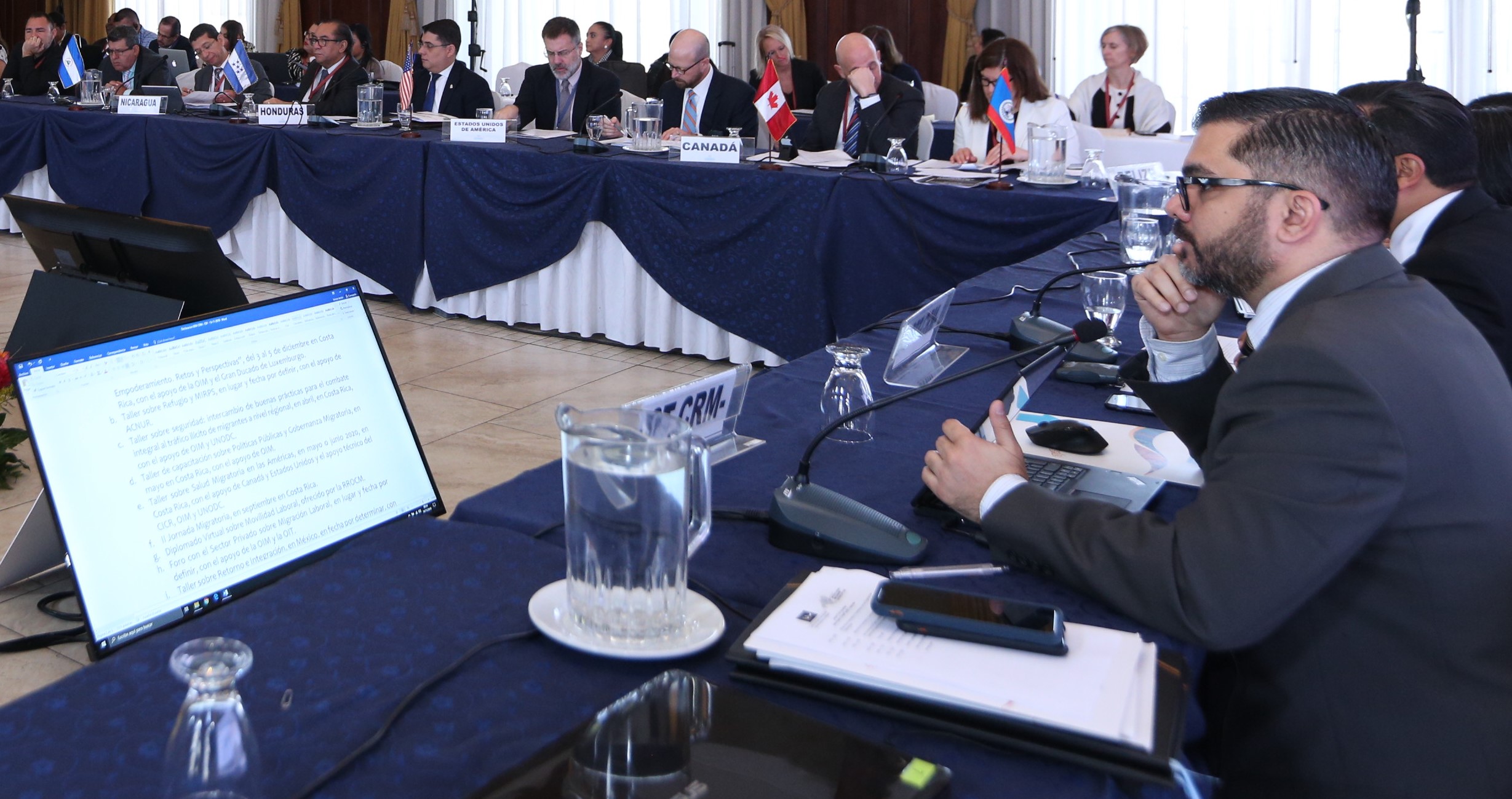Welcome to the Regional Conference on Migration
The Regional Conference on Migration (RCM), also known as the Puebla Process, was established in February 1996 as a result of the Tuxtla II Presidential Summit. RCM is a multilateral mechanism for coordinating policies and actions relating to migration in the eleven Member States: Belize, Canada, Costa Rica, the Dominican Republic, El Salvador, Guatemala, Honduras, Mexico, Nicaragua, Panama, and the United States. Its primary objectives are to exchange information, experiences and best practices, and promote regional cooperation on migration.
The tenets of RCM are:
- To create a forum for frank and honest discussion on regional migration issues, leading to greater regional coordination and cooperation.
- Undertake regional efforts to protect the human rights of migrants and strengthen the integrity of each member state's immigration laws, borders, and national security, as well as to strengthen the links between migration and development.
In addition to providing a space for dialogue and information exchange between governments, a vast array of actions have been implemented within the framework of this regional process: cooperation projects; projects to assist the return of migrant women and children; training workshops and seminars on topics relating to migration; and technical and institutional assistance for immigration authorities from Member States of RCM.
In the last years Member States have identified current phenomena, such as migration of boys, girls and adolescent and extra-regional migration, and came together to guarantee an effective and concrete response by creating the Ad Hoc Groups which operate in these subjects.
In Central and Northern America and in the Dominican Republic, the RCM is among the key entities when it comes to respond to the increasing mobility of people and therefore to improve the management of migrations.










